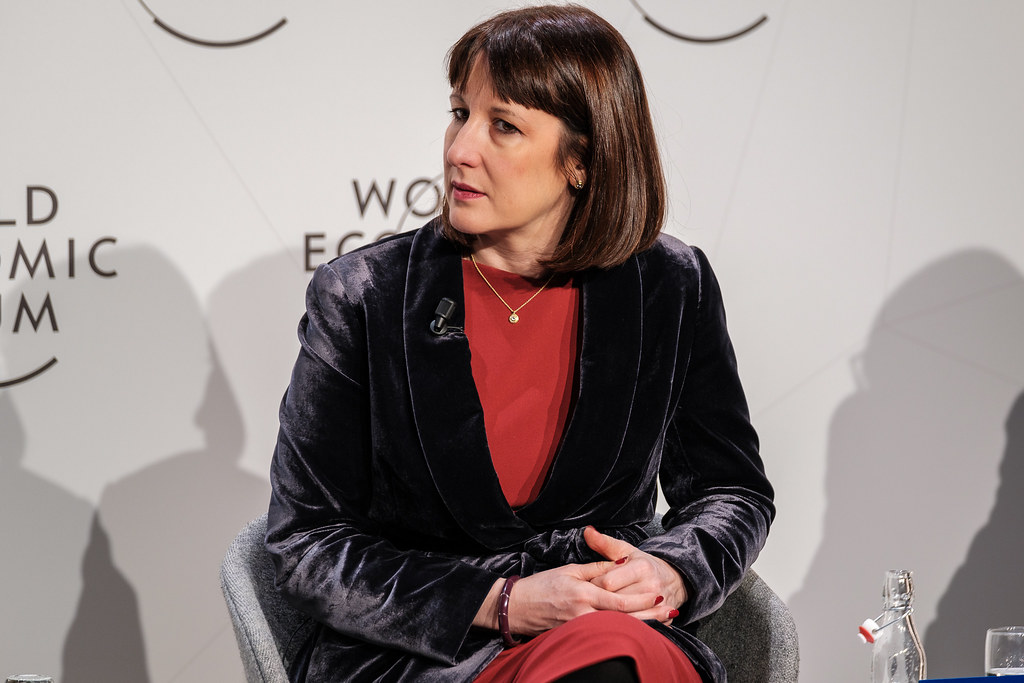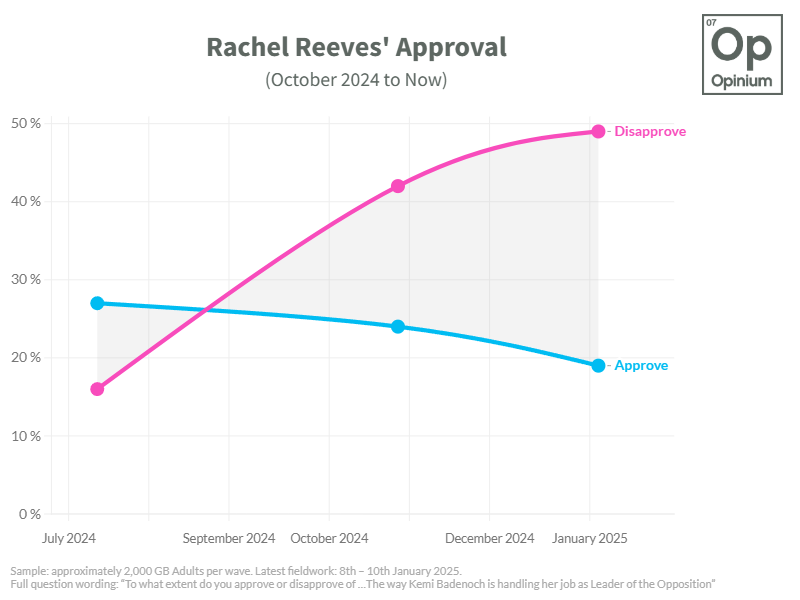Can the Chancellor survive the fall?

Calum Weir discusses Chancellor Rachel Reeves’ current predicament and whether she can outlast her and the Government’s declining approval ratings.
Republished 21st January 2025
In 1979, the steeplejack Fred Dibnah talked about great heights. “I’ve never fell off a big chimney,” he said, “you only fall off one of them once.”
Labour was always dealing with great heights when they came into office. In Opinium’s last poll before the election, a majority of voters thought Labour had run a good campaign (including 35% of Conservative voters) and 31% said they thought more positively about Keir Starmer than when the campaign began. As we know, they received an historic landslide majority. There was optimism, albeit against the background of a growing distaste towards politics and politicians. However, the dizzying heights Labour reached mean there is some distance to fall.
Currently, Rachel Reeves is in an unenviable position – she is falling behind because things are staying still. Economic indicators have stayed depressingly stagnant (even in spite of a surprise fall in inflation recently) and therefore Reeves’ approval ratings are falling as a result. It has garnered enough attention to prompt Downing Street to publicly insist that the Chancellor will remain in her role for the “whole of this Parliament”, while Conservatives have described Reeves’ precarious position as “hanging on by her fingernails”.
When it comes to the public’s outlook on finances, very little has changed compared to last year. Last February, 47% thought the economy would get worse and 30% thought their finances would get worse. A year later there’s no improvement, with 51% thinking the economy will get worse and 33% thinking their finances will get worse.
The public’s perception of rising prices has been relatively constant too. A year ago, 91% thought groceries had gone up in the past 12 months – 12 months hence, that is still a common perception at 81%.
For a Labour government that so clearly called for change, there has been a lack of it where it matters most: peoples’ pockets. It is no wonder then that Rachel Reeves’ approval ratings reflect dissatisfaction with the situation 6 months on from the election.
This has meant that Reeves and the Party have fallen in a few different metrics. Her personal approval has fallen from +11% after Labour won the election last July; on the eve of the Autumn Budget in October, she was on -18% approval. She is now on an approval rating of -31%. It seems that things are slipping fast.

The Government’s economic handling has taken a hit too. The Conservatives have a slim +1% lead on running the economy over Labour. They also have +2% lead on “improving your financial situation”. Just over a year ago, Labour had +4% and +7% leads on these attributes respectively.
The only way out for the Chancellor is that “height” mentioned at the start; Labour have a vast majority, so Reeves can take advantage of that to stay the course and hope that things get better. This strategy can work for a decently long time, but it cannot work forever. The public understood that Labour were going for growth in their first Budget (it was the second-most cited Labour priority by the public), but if they do not see that being delivered soon, it’s a long way down.
As seen in Lansons-Opinium Political Capital.
Subscribe to our Substack read more about the polling we do for campaign groups
See the full table tables here.
Notes to Editor:
Opinium carried out an online survey of 2,050 UK adults aged 18+ from 8th to 10th January 2025 in partnership with The Observer. Results have been weighted to be politically and nationally representative. A majority of the fieldwork took place before the resignation of Louise Haig was announced, or the assisted dying vote took place.



